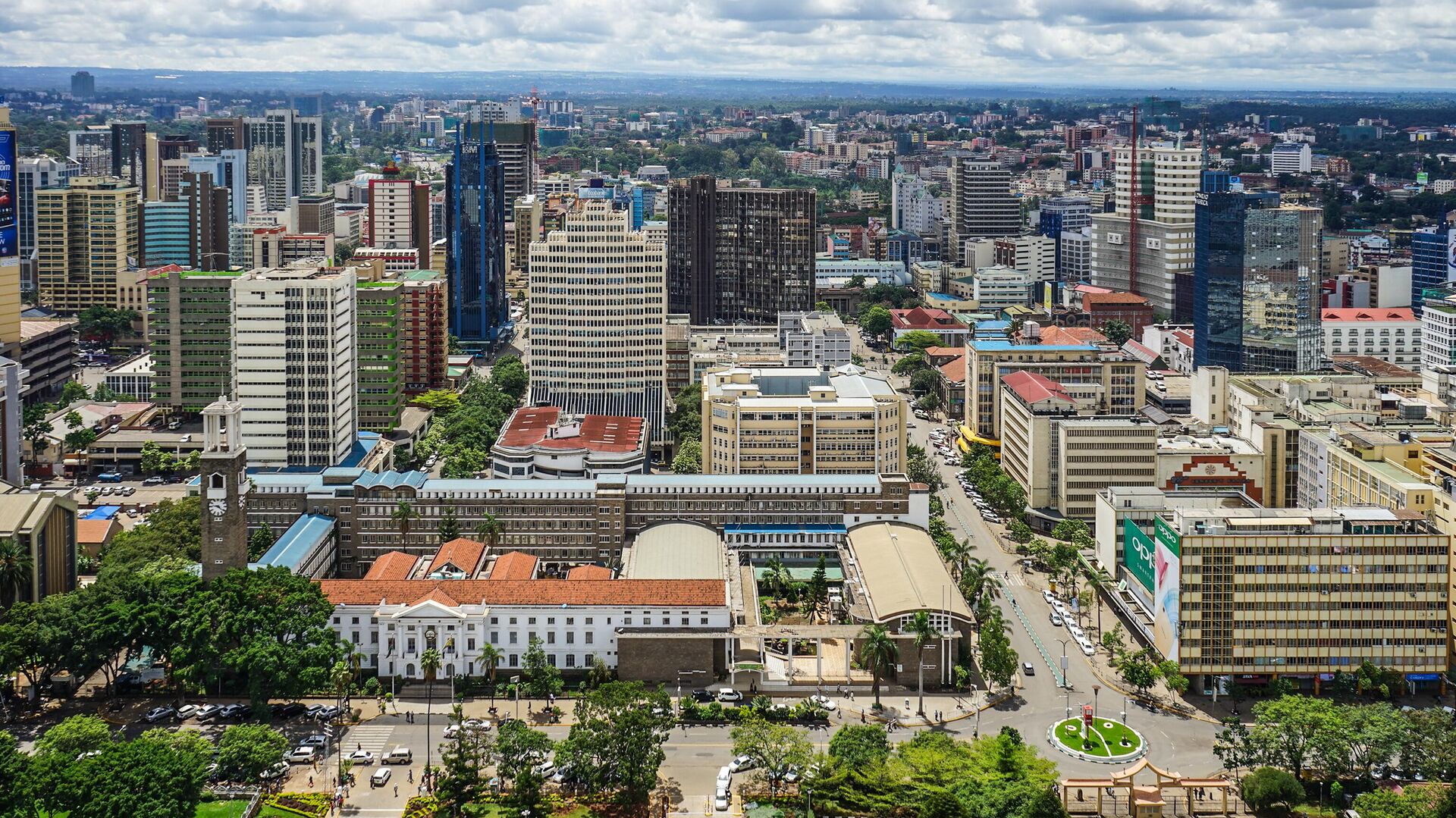https://en.sputniknews.africa/20230607/this-african-countrys-economic-growth-will-tellingly-accelerate-in-2023-world-bank-estimates-1059772823.html
This African Country's Economic Growth Will Tellingly Accelerate in 2023, World Bank Estimates
This African Country's Economic Growth Will Tellingly Accelerate in 2023, World Bank Estimates
Sputnik Africa
Twice a year, the World Bank publishes a series of reports titled "Kenya Economic Update," which assesses recent economic and social developments and prospects... 07.06.2023, Sputnik Africa
2023-06-07T18:36+0200
2023-06-07T18:36+0200
2023-06-07T18:36+0200
sub-saharan africa
kenya
east africa
economic growth
world bank
https://cdn1.img.sputniknews.africa/img/07e7/06/07/1059776975_0:41:3071:1768_1920x0_80_0_0_ef45b7cb56df68c5ea145ba16da146b3.jpg
Kenya's GDP growth over the medium term is expected to hit 5% this year and 5.2% on average in 2024-25, according to the latest World Bank report.The report revealed that despite a slowdown in economic growth in 2021 due to the crisis linked to COVID-19, in 2022, the East African country was back on the rails of the "long-term growth trajectory" with GDP growth at 4.8%.In the second half of 2022, the Kenyan economy reportedly proved resilient amid "volatile commodity prices, tightening global financing conditions, exacerbated by the worst drought in four decades."As World Bank experts noted, the successes in the economic field are a result of the country's competent macroeconomic policy, including fiscal consolidation and a tighter monetary policy.However, the report also highlighted the risks that the country's growing economy could face. These include external risks, such as elevated global commodity prices that "can increase Kenya's import bill and increase the cost of reducing inflation," and internal threats.Earlier, Kenyan farmers and suppliers warned of higher prices for a number of food products inside the country due to elevated input and fuel costs, decreased domestic output, and increased import costs.
kenya
east africa
Sputnik Africa
feedback@sputniknews.com
+74956456601
MIA „Rossiya Segodnya“
2023
Maxim Grishenkin
https://cdn1.img.sputniknews.africa/img/07e7/0a/17/1063018107_0:0:1104:1103_100x100_80_0_0_03090c85a11f5d2e8a19cf1d989443c9.jpg
Maxim Grishenkin
https://cdn1.img.sputniknews.africa/img/07e7/0a/17/1063018107_0:0:1104:1103_100x100_80_0_0_03090c85a11f5d2e8a19cf1d989443c9.jpg
News
en_EN
Sputnik Africa
feedback@sputniknews.com
+74956456601
MIA „Rossiya Segodnya“
Sputnik Africa
feedback@sputniknews.com
+74956456601
MIA „Rossiya Segodnya“
Maxim Grishenkin
https://cdn1.img.sputniknews.africa/img/07e7/0a/17/1063018107_0:0:1104:1103_100x100_80_0_0_03090c85a11f5d2e8a19cf1d989443c9.jpg
kenya, east africa, economic growth, world bank
kenya, east africa, economic growth, world bank
This African Country's Economic Growth Will Tellingly Accelerate in 2023, World Bank Estimates
Twice a year, the World Bank publishes a series of reports titled "Kenya Economic Update," which assesses recent economic and social developments and prospects in Kenya and places them in a longer-term and global context.
Kenya's GDP growth over the medium term is expected to hit 5% this year and 5.2% on average in 2024-25, according to the latest
World Bank report.
The report revealed that despite a slowdown in economic growth in 2021 due to the crisis linked to COVID-19, in 2022, the East African country was back on the rails of the "long-term growth trajectory" with GDP growth at 4.8%.
"The growth momentum was driven by the service sector which contributed about 80% of the increase in total GDP. Financial services, tourism, and transport sectors performed especially strongly," the World Bank explained.
In the second half of 2022, the Kenyan economy reportedly
proved resilient amid "volatile commodity prices, tightening global financing conditions, exacerbated by the worst drought in four decades."
As World Bank experts noted, the successes in the economic field are a result of the country's competent macroeconomic policy, including fiscal consolidation and a tighter monetary policy.
"Fiscal consolidation plays a central role in supporting Kenya’s macroeconomic foundations for inclusive and sustained growth," Keith Hansen, World Bank Country Director, said.
However, the report also highlighted the risks that the country's growing economy could face. These include external risks, such as elevated global commodity prices that "can increase Kenya's import bill and increase the cost of reducing inflation," and internal threats.
"Domestic risks are mostly linked to spending pressures to reduce the high cost of living and a slowdown in tax efforts," the World Bank warned.
Earlier, Kenyan farmers and
suppliers warned of higher prices for a number of food products inside the country due to elevated input and fuel costs, decreased domestic output, and increased import costs.


